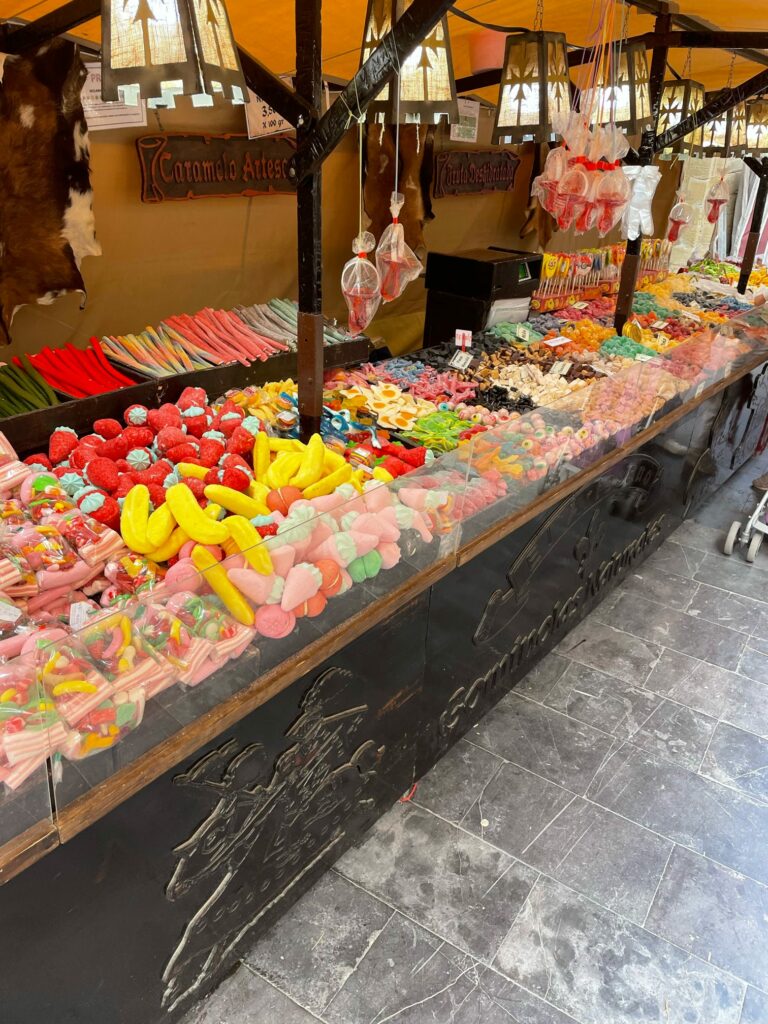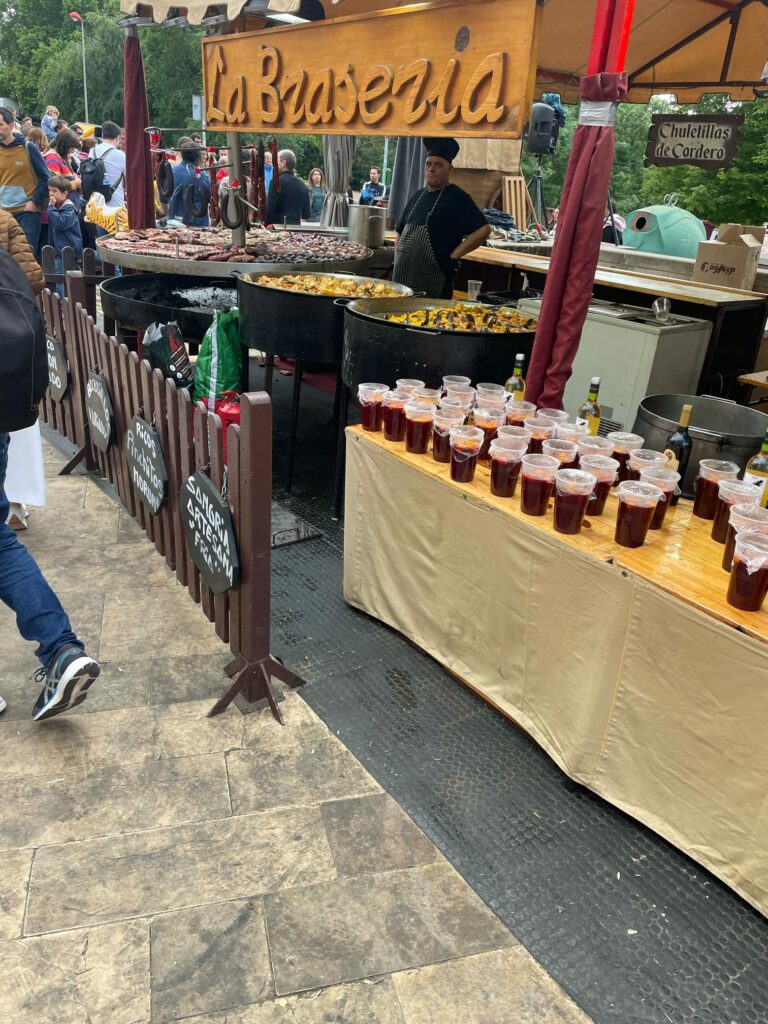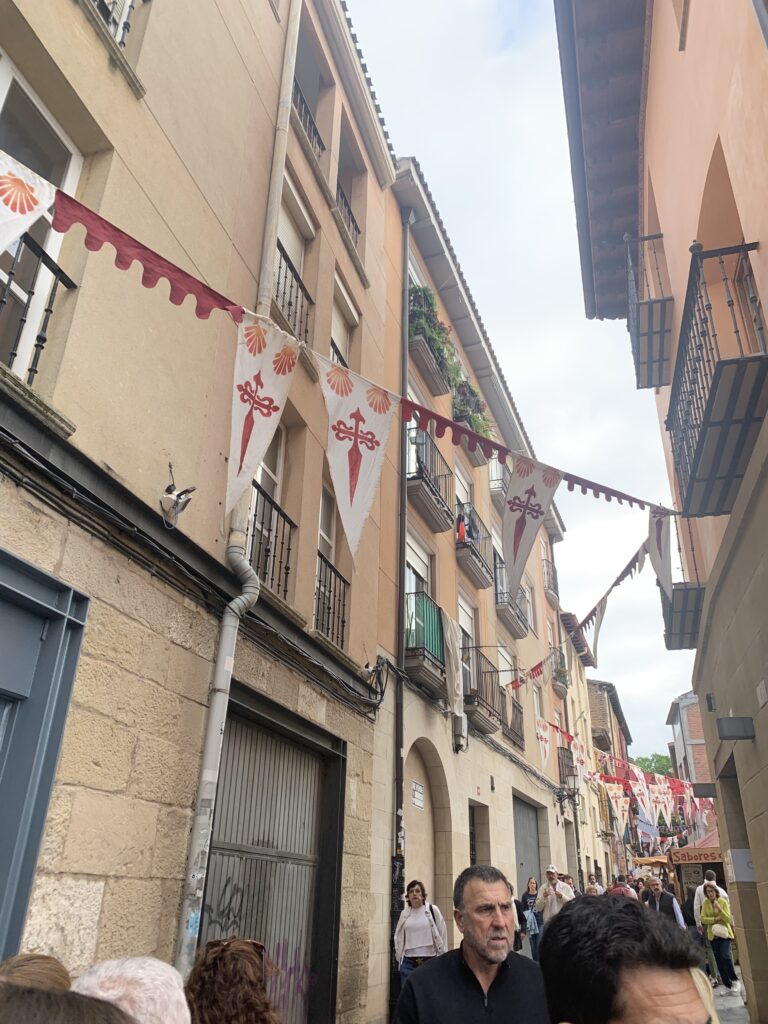As my study abroad group hiked into the city of Logroño, we noticed that something about it was different from the other cities we had visited. Festive banners adorned the streets, and when we got to the hotel, the concierge explained what was going on. The city was celebrating the festival of its patron saint, San Bernabé. Excited to experience a Spanish cultural event, we ventured into the streets of Logroño to see what the festival offered. There were people walking around in medieval costumes, carnival rides for children, and processions of musicians. We paused to watch a group of drummers in matching black costumes perform. Sometimes the streets were tough to navigate, but the excitement in the air was almost palpable! There were crowds of people eating dinner and enjoying the festivities. Vendor stalls lined the walkways, offering a wide selection of food, drinks, and handcrafted goods. From a bridge over the Ebro River, we ended the night by watching a display of fireworks.
The festival was still in full swing when we woke up the next morning. However, the solemn religious elements seemed to take the forefront on the second day we were in Logroño. First, we saw a long line snaking towards our hotel at the edge of town. By asking around, we found out that the line was made up of people waiting to receive bread, wine, and fish, the traditional food of the festival, from the Confraternity of Fish. Our professors intended for our day to be spent learning about medieval history by visiting Logroño’s churches, but their plans were largely foiled by the special masses held in most churches to celebrate the festival. We found one church that was not holding a service. Its speakers played soft Gregorian Chants and incense burned, perfuming the space. The atmosphere of the church, combined with what we had seen of the festival, made me feel as though I had been transported back centuries and was standing in a medieval city. Although our lesson did not go entirely to plan, I felt that the festival of San Bernabé gave of the gift of a true instance of experiential learning as we took part in a religious event rooted in centuries of history.



